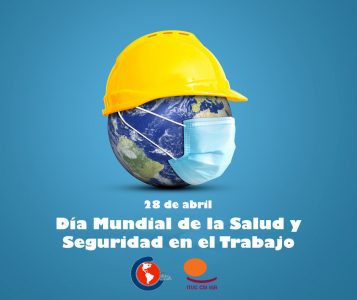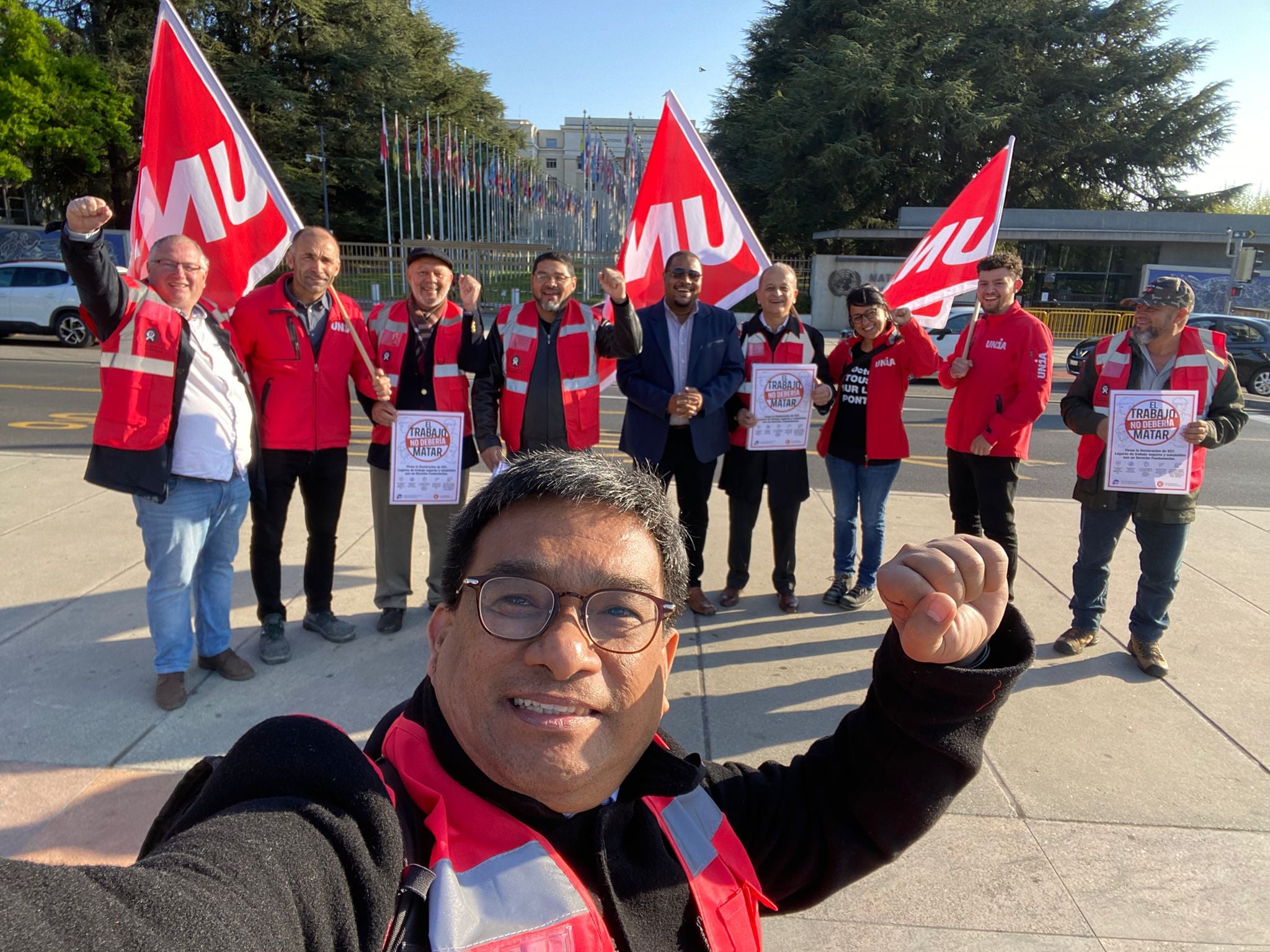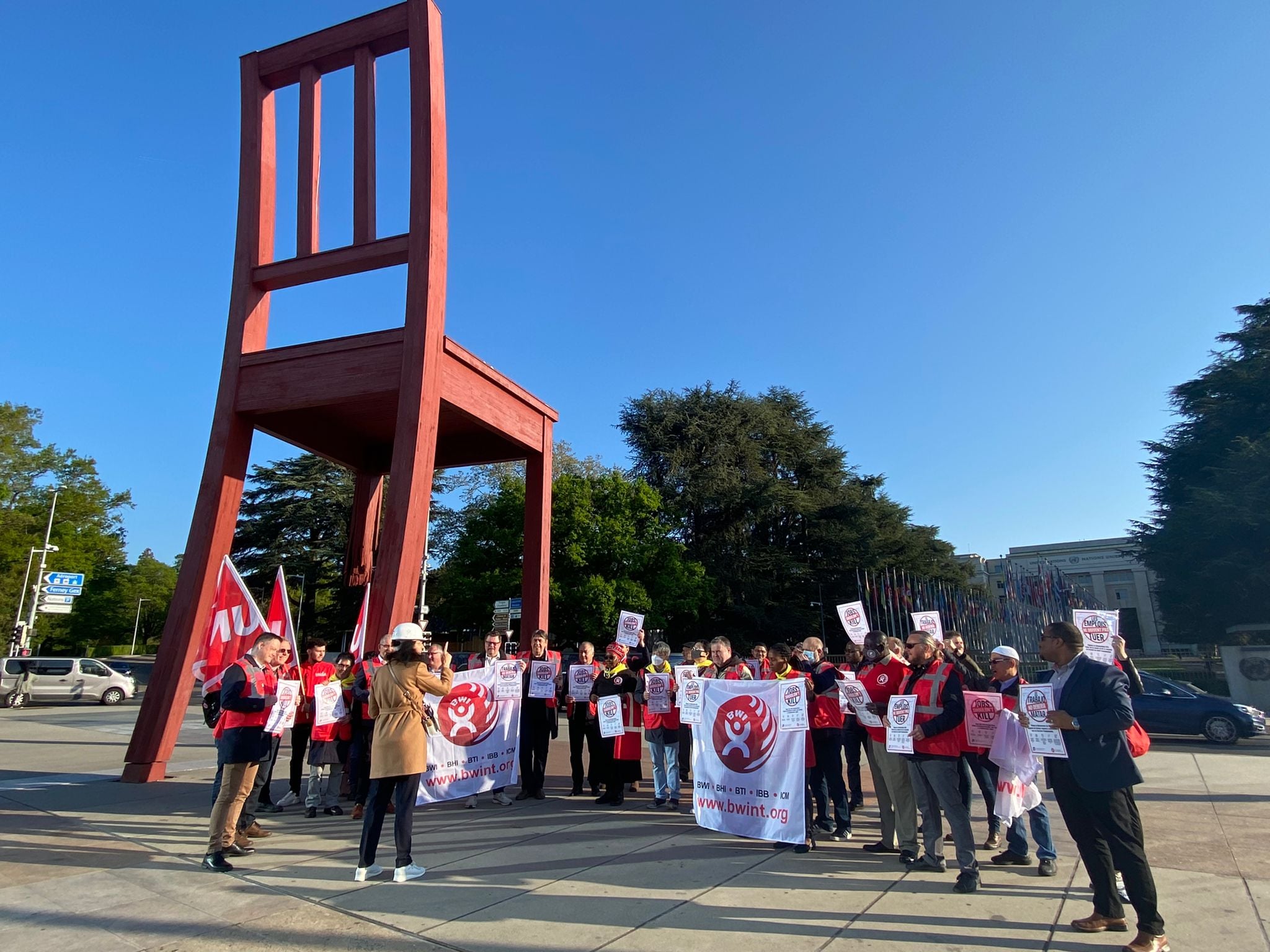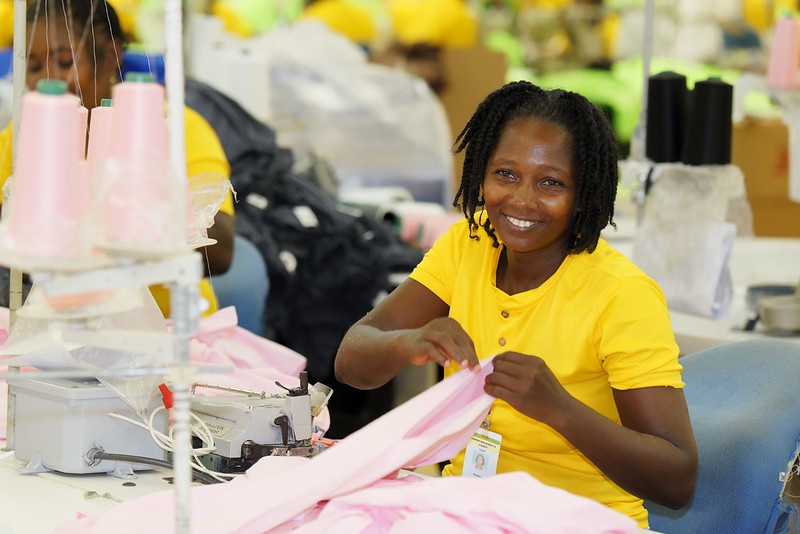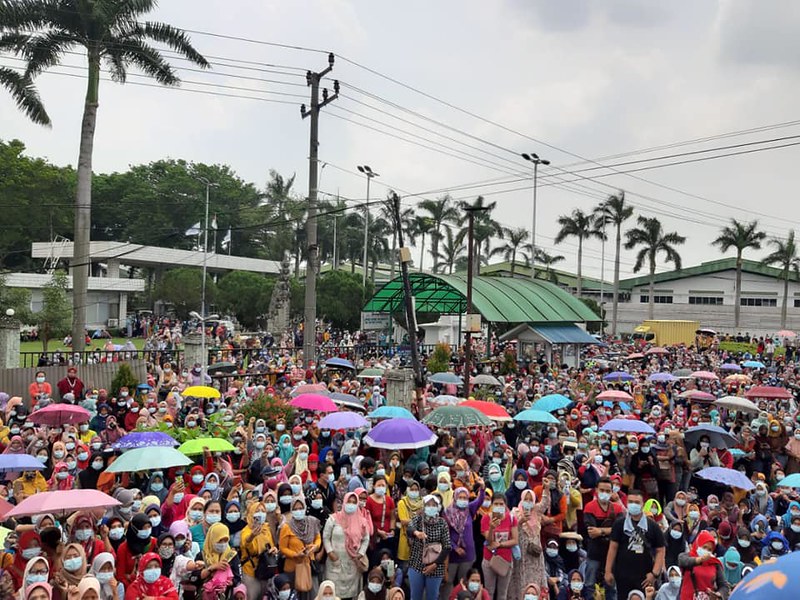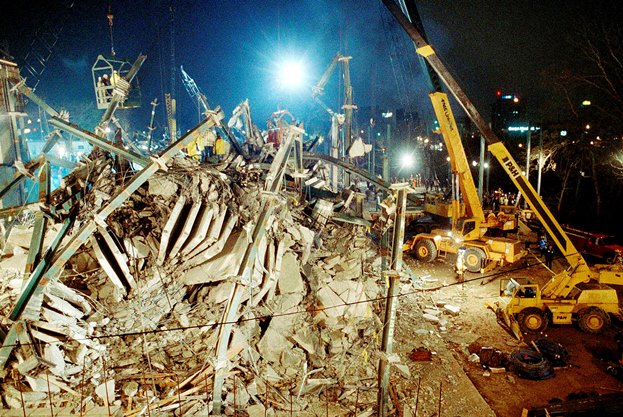To commemorate this year’s International Workers’ Memorial Day, BWI-affiliated trade unions once again raised their voices to persuade the International Labour Organisation (ILO) to recognise health and safety as a fundamental right.
Through meetings with workers, nationwide tours on occupational health and safety (OHS), press conferences, OHS training workshops and social media use for campaigning, 105 BWI-affiliated unions from 50 countries took part in the global union’s month-long IWMD campaign.
Some of the highlights of BWI affiliates’ various IWMD actions worldwide were:
- The action by the Belgian affiliate ACV where more than 1,000 ACV activists and staff members visited nearly 15,000 industry workers in the spread of more than 2,000 sites. The trade union took advantage of the opportunity to give workers good advice on health and safety.
- In South Korea, KFCITU opened a union hotline for the reporting of dangerous work, and held various rallies to support disclosure of serious accidents and occupational diseases. It also held a memorial ceremony on the second anniversary of the Han Express Accident (29 April)
- In Montenegro, the Association of Occupational Safety and Health of Montenegro awarded Nenad Markovic, President of the Trade Union of Construction and Industry of Building Materials of Montenegro (SGIGMCG), for his union’s exemplary contribution to the promotion of occupational health and safety.
- In Zimbabwe, the affiliates CLAWUZ, ZCATWU and GAPWUZ organised an Occupational Safety and Health Workshop on IWMD. During the workshop, participants shared their OHS experiences, discussed the key principles and aims of OHS, and highlighted the various types of occupational hazards.
- In Brazil, BWI affiliates, together with other trade unions and government organizations, launched a book titled “Rosca sem Fim: Basta de mortes, acidentes e doenças do trabalho.”
- BWI’s youth affiliates celebrated IWMD 2022 by once again carrying the theme “life before profit.” This was led by young trade unionists from FILCA CSIL (Italy), SERBUK (Indonesia), CMWEU (Mauritius), FOCRA (Argentina), STICC POA (Brasil) and INTERGREMIAL (Colombia), among many others. The youth section of BYGGNADS released a video commemorating the 44 workers who lost their lives in 2021 to work-related accidents. Meanwhile, an OHS exhibit was mounted by CMWEU young unionists in Mauritius near a monument in Rose Hill to honour of workers.
Labour inspections and workplace sensitisation activities were also held at construction projects in India, Bangladesh, Nepal, Sri Lanka, Kenya, Tanzania, Uganda, Burkina Faso, Senegal, Turkey, Tajikistan, Croatia, Bosnia and Herzegovina, El Salvador, Brazil and Argentina to ensure safety, hygiene and health measures are taken at worksites.
The big presence of BWI affiliates on conventional and social media is also worth mentioning. Such presence ensured BWI’s messages were conveyed far and wide and further stressed the importance of this year’s International Labour Conference (ILC) to declare OSH as a fundamental right.
To cap the campaign, BWI recognised the achievement of its affiliates in gathering signed joint OHS declarations with different construction, building materials and wood companies and employers’ associations. In total, over 450 OHS declarations have now been signed covering over 483,000 employers, and 18 million workers.
Source: BWI



